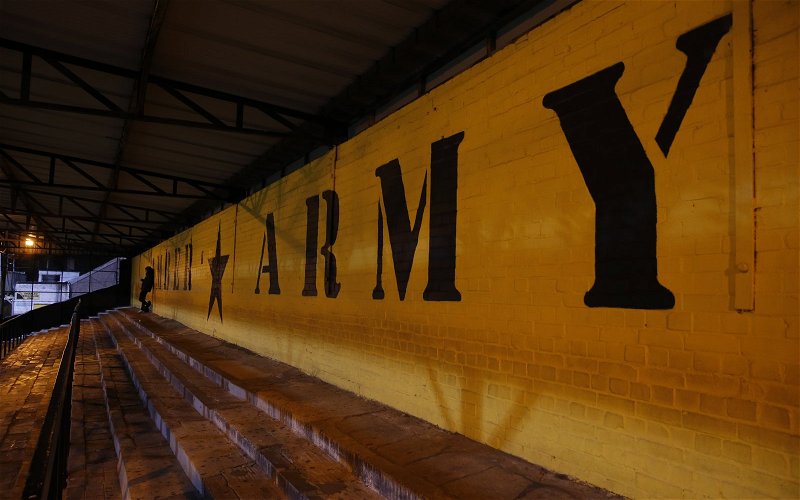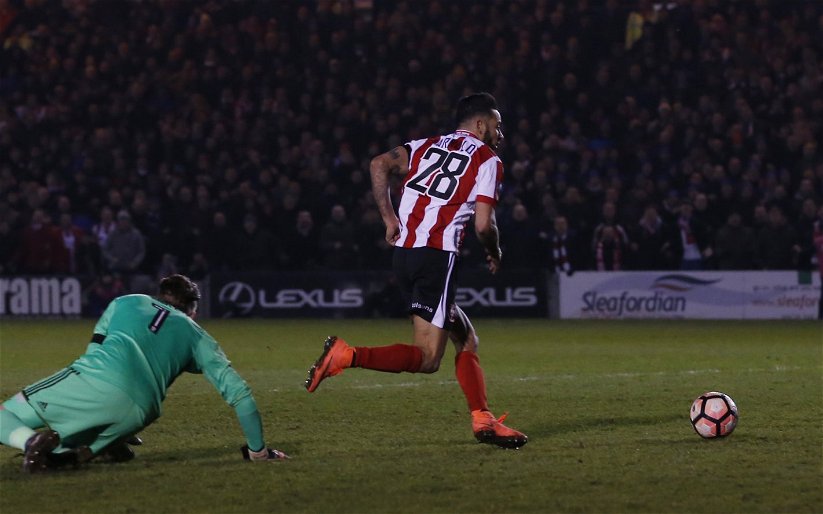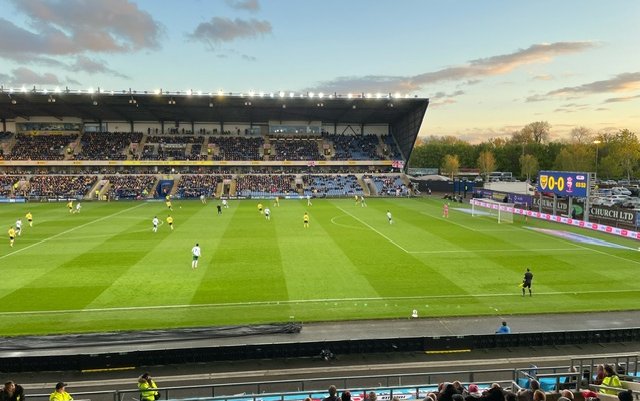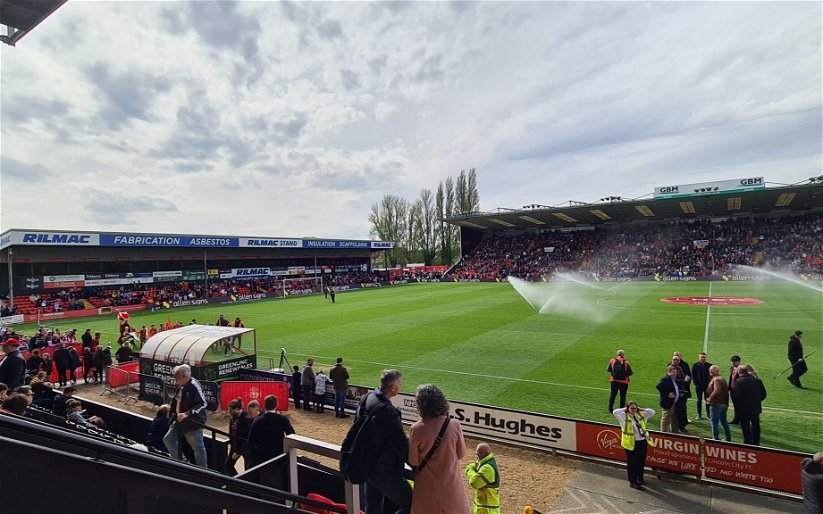The name of Irish defender Joe Dunne is not widely known in the greater world of football, yet the 45-year-old manager of Cambridge United has served a lengthy and tough apprenticeship to reach where he is today.
Coming to England from Dublin at the age of fifteen after the death of his father two years earlier, Dunne obtained a week-long trial at Gillingham and won himself a contract for the 1989-90 season. Making his first-team debut in 1991, Dunne won a regular place in a side that generally struggled in football’s basement division. Ironically, he departed Priestfield just as the Gills were closing in on promotion to the old Second Division in March 1996. The compensation was that he signed for Colchester United, starting an association that would see him serve the Us in almost every position on and off the field in a near-twenty-year association. In all, he made 134 appearances for Gillingham, scoring one goal.
His new club was also having a good season in 1995-96, reaching the Third Division playoffs by finishing seventh. Dunne did not feature in the two semi-finals against Plymouth, which the Us lost 3-2 on aggregate, but the 1996-97 season was to prove just as exciting and equally disappointing. In addition to just missing a second successive play-off spot by a single point, Colchester went down on penalties to Carlisle United in the final of the Auto Windscreens Shield in front of 45,000 at Wembley. Another near-miss occurred the following season as Colchester missed automatic promotion by another solitary point behind…Lincoln City. However, Dunne helped his side back to Wembley with a 3-2 aggregate win over Barnet, and a 1-0 win over Torquay in the final gave the fullback his first – and so far only – taste of promotion.
While Lincoln made an immediate return to the Third Division in 1998-99, Colchester fared slightly better by avoiding relegation by two points. To everyone’s surprise, newly-appointed Colchester manager Mick Wadsworth released Dunne and nine other players as the new broom swept clean. He had made 112 appearances for the club, scoring four goals.
Like many players suddenly finding themselves without a club, Dunne dropped down to non-league football to sign for Conference side Dover Athletic where he was named captain. His stay was to prove short, as a surprise return to Colchester followed in December. Colchester had started poorly, and Wadsworth had gone; his replacement Steve Whitton immediately brought Dunne back and restored him to the side. An upturn in form saw them finish well clear of the relegation zone in 18th. The 2000-01 season followed a similar pattern, with the side finishing 17th. Unfortunately, his career came to a premature end due to a serious cartilage and cruciate knee ligament injury picked up during a 1-0 home defeat to Bury in November 2001. Despite a lengthy attempt at rehabilitation, he decided to retire in April 2003 at the age of 29. He totalled 327 appearances for his three clubs, scoring ten goals.
Colchester immediately offered Dunne a coaching position at the club, and so started his second career in football. Over the next six years, he served as youth team coach, senior youth team coach, temporary assistant manager (four times), reserve team manager, and first-team coach under five different managers. During that time, he led the youth team to the quarter-finals of the FA Youth Cup in 2004-05 and to the final of the Football League Youth Alliance Cup Final in 2005-06. Furthermore, he continued his coaching education with spells at Anderlecht and Ajax to observe their academies, an experience that would hold him in good stead a few years later.
When Paul Lambert left the club for neighbours Norwich in August 2009, Dunne stepped up as caretaker manager for the first time. Despite not being in the running for the job, it gave him a taste for management. A year later he was promoted to assistant manager on a permanent basis under Lincoln legend John Ward, and when Ward was sacked in September 2012 after eight games without a win, Dunne was the natural replacement. He won four of his first seven games, but then lost nine in a row to leave the Us in the League One relegation zone. Only a 2-0 win at Carlisle on the final day kept them up. It had been a tough baptism, and after going through six managers in six years, he may have feared for his job. Colchester kept the faith though, and another battling season saw the side finish six points clear of relegation in 2013-14. Eager to blood players from the academy he used to run, one of the players given his debut that season was a certain Macauley Bonne, later to appear for Lincoln during the 2016-17 championship season.
Unfortunately, results never did improve significantly, and Colchester finally lost patience early the following season. Dunne left by mutual consent on 1 September 2014, having been at the club for eighteen years. Wishing to remain in coaching, he was appointed as assistant manager to Richard Money at Cambridge United in May 2015. Money had taken Cambridge from the Conference in 2014 and had just signed a new three-year deal with the club. However, Cambridge started the 2015-16 season poorly, and Money was sacked in November with the side 18th. Dunne took temporary charge for the 1-0 FA Cup win over Basingstoke before former Notts County manager Shaun Derry was brought in, with Dunne retaining assistant manager status. The anticipated push for promotion never materialised under Derry, and eventually, he left the club minutes after a 0-0 home draw against Lincoln on 9 February 2018. Dunne was asked to take over as caretaker for the second time and did well enough to secure the job permanently on 2 May 2018.
On paper, Joe Dunne’s record as a manager looks mediocre at best. His points-per-game return of 1.206 translates into just 55 points over a full season, but it must be remembered that the majority of his managerial career to date was spent at a small club trying to compete in League One. He has a wealth of coaching experience gathered over fifteen years, but football’s graveyard is full of good coaches who have failed to make the step up to manager. He has a three-year contract at Cambridge, but an improvement on last season’s mid-table finish may be the expectation if he is to see the second year of it.

Key:
P = Promoted; R = Relegated; SF = Lost in play-off semi-final; F = Lost in play-off final; PO = Won play-off final; D = Demoted.
Figures are league games only; cup matches and playoffs are not included.
League position shown is either the position at the end of the season or the position at the time of departure.

Writer: Scotimp
Who Are The League Two Managers? No.2: Joe Dunne (@CambridgeUtdFC):https://t.co/GxjR1v9Mna#Cambridge #CamUTD #EFL pic.twitter.com/VjaOQcCPQF
— Vital Lincoln City (@VitalLincoln) June 29, 2018
https://www.facebook.com/VitalLincolnCity/posts/1740239752678929



